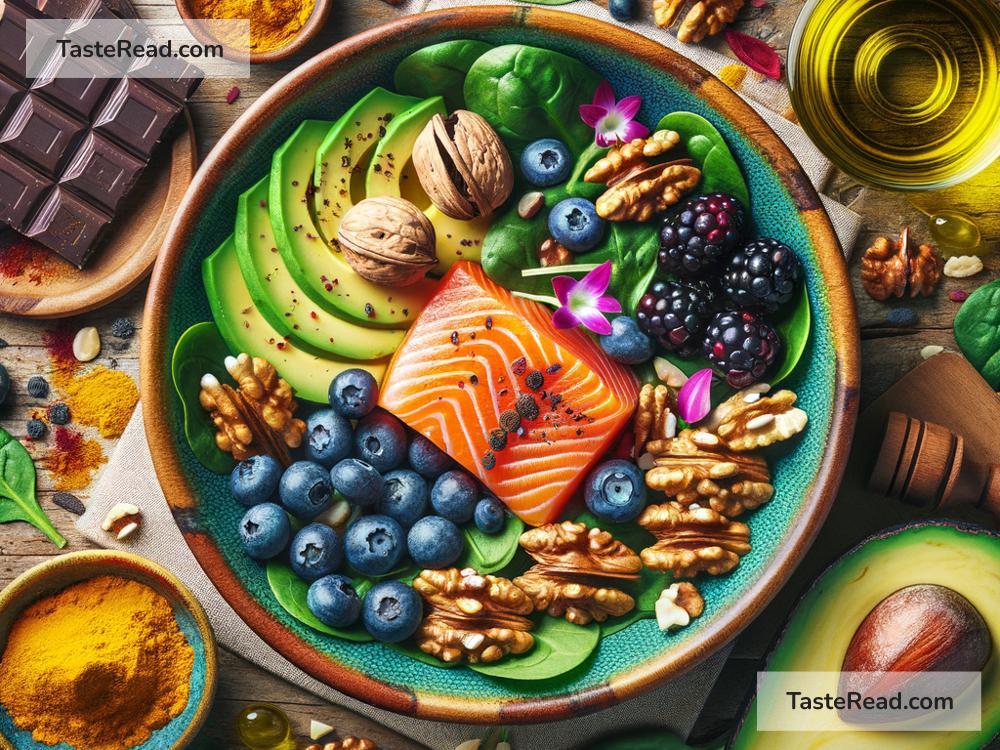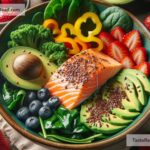Boost Your Brainpower: Foods That Improve Synaptic Plasticity
Your brain is amazing! It’s home to billions of tiny connections called synapses, which allow nerve cells (neurons) to communicate and send signals throughout your body. These synapses help you learn new things, remember information, and adapt to experiences. The flexibility and adaptability of these connections is called synaptic plasticity. Improving synaptic plasticity is like giving your brain a workout, making it stronger and more efficient.
The good news is that what you eat can boost synaptic plasticity. Certain foods are packed with nutrients that promote brain health, support neuron communication, and even help protect your brain as you age. In this blog, we’ll explore some of the best foods for improving synaptic plasticity in a simple and accessible way.
What Is Synaptic Plasticity and Why Does It Matter?
Synaptic plasticity refers to the brain’s ability to strengthen or weaken connections between neurons based on experience or activity. This process is crucial for learning, memory, and overall cognitive function. Think of synaptic plasticity as your brain’s ability to adapt and improve—kind of like upgrading software on your computer.
Just like any other part of your body, your brain needs specific nutrients to function at its best. Certain foods contain compounds that support synaptic plasticity by enhancing brain communication, reducing inflammation, and promoting the growth of new neurons. Including these foods in your diet is a simple way to keep your brain healthy and sharp.
Foods That Improve Synaptic Plasticity
Here are some brain-boosting foods you can add to your plate:
1. Fatty Fish (Salmon, Mackerel, Sardines)
Fatty fish like salmon are rich in omega-3 fatty acids, particularly DHA (docosahexaenoic acid). Omega-3s are essential for maintaining the health of brain cells and supporting communication between neurons. Studies show that omega-3s improve synaptic plasticity and may even help prevent age-related memory decline.
If you’re not a fan of fish, you can still get omega-3s from walnuts, chia seeds, flaxseeds, or algae-based supplements.
2. Blueberries
Blueberries are often called a “superfood” for the brain. They contain antioxidants like flavonoids that protect your brain from oxidative stress. These antioxidants also encourage the release of a protein called brain-derived neurotrophic factor (BDNF), which helps grow and maintain synaptic connections.
Snacking on blueberries, blending them into smoothies, or adding them to oatmeal can give your brain a natural boost.
3. Dark Leafy Greens (Spinach, Kale, Broccoli)
Dark leafy greens are loaded with vitamins and minerals, including vitamin K, folate, and iron, which are known to support cognitive function. Folate plays a particularly important role in regulating neurotransmitter activity and maintaining synaptic plasticity.
Try incorporating spinach or kale into salads, stir-fries, or smoothies for an easy brain-boosting meal.
4. Nuts and Seeds (Walnuts, Almonds, Sunflower Seeds)
Nuts and seeds are packed with healthy fats, antioxidants, and vitamin E, which help protect the brain from damage and inflammation. Walnuts, in particular, contain high amounts of omega-3 fatty acids and compounds that can support neuron health and improve memory.
A small handful of nuts or seeds makes a great snack or a crunchy topping for yogurt and salads.
5. Eggs
Eggs are an excellent source of choline, a nutrient that helps produce acetylcholine, a neurotransmitter important for synaptic communication and memory. Eggs also contain essential vitamins like B12, which play a role in brain function.
Start your day with eggs for breakfast or incorporate them into dishes like omelets and salads.
6. Turmeric
This vibrant yellow spice contains an active compound called curcumin, which has powerful anti-inflammatory and antioxidant properties. Curcumin can cross the blood-brain barrier, making it effective in promoting synaptic plasticity and protecting neurons. Research suggests turmeric may enhance memory and even reduce the risk of neurodegenerative disorders.
Add turmeric to soups, teas, or curries for a flavorful and brain-friendly kick.
7. Dark Chocolate
Good news for chocolate lovers—dark chocolate (with at least 70% cocoa content) can benefit your brain. It’s rich in flavonoids, compounds that improve blood flow to the brain and support synaptic plasticity. Dark chocolate also releases mood-boosting hormones, making it a treat for both your brain and your mood.
Enjoy a small square of dark chocolate daily to reap its benefits.
8. Avocado
Avocados are full of healthy fats, particularly monounsaturated fats, that support brain health. They also contain vitamins like B6 and E, which help reduce inflammation and encourage synaptic growth.
Mash avocado onto toast, blend it into guacamole, or slice it over salads for a brain-friendly meal.
9. Whole Grains (Oats, Quinoa, Brown Rice)
Whole grains provide a steady source of energy for your brain to function at its best. They’re rich in fiber and antioxidants that support overall brain health and reduce inflammation. Whole grains also help regulate blood sugar levels, which is important for consistent cognitive function.
Make whole grains a staple in your meals, whether it’s oatmeal for breakfast or quinoa in your lunch bowl.
Conclusion: Brain Food = Better Brain Function
Eating the right foods can have an incredible impact on your brain’s health and performance. By including foods rich in omega-3s, antioxidants, vitamins, and healthy fats, you’re giving your brain the fuel it needs to improve synaptic plasticity. Remember, a healthy brain enhances your ability to think, learn, and remember things, and these foods can help you function at your best.
Start small—try adding blueberries to your morning routine, swapping white rice for quinoa, or snacking on walnuts instead of chips. Over time, these habits can lead to long-term brain health and sharper cognitive skills. So, next time you sit down for a meal, think of it as a way to nourish both your body and your brain!


